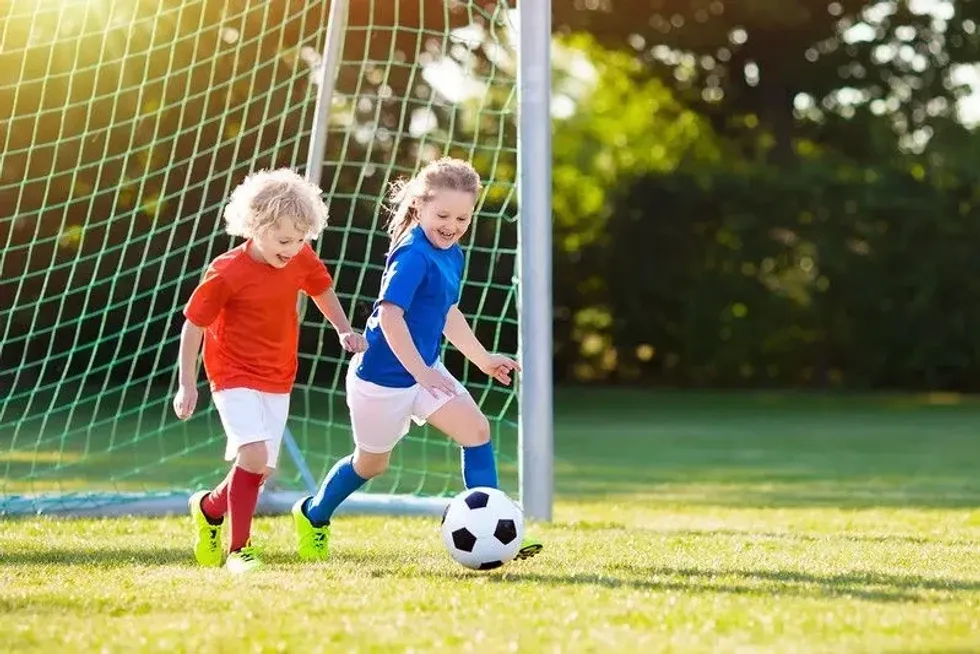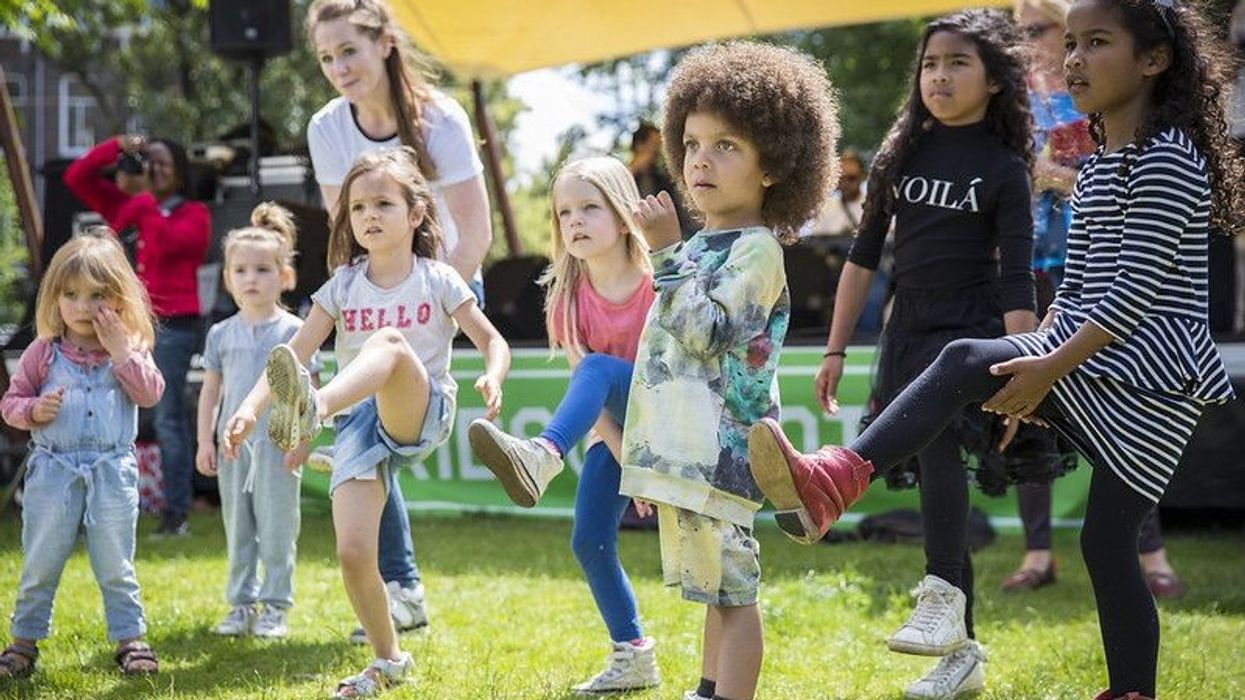Image: iStock
The benefits of being active are huge, socially, psychologically and physically.
If your child tells you they want to take up a sport, leap at the chance. Sport is character-building and great for mental health, as well as teaching them the value of team work, developing stamina and learning new skills.
How To Encourage Kids To Get Active
Lead by example
Demanding that your child takes up sport, while lounging on the sofa, munching a megabag of chips may not the best example! Your child may, in their head, want to do sport, but lack motivation to actually get out and do it.
So be on their team. Suggest they come for a jog with you, or show them how you scale that miniature climbing wall in the park.
Keep it fun
Take the pressure off your child. If you stress them out, it will zap their enjoyment. Children, generally have lower attention spans, so, understand when they have had enough, and don't push them.
Stay positive
Don't let your disappointment show if your child's team loses. This will just knock their confidence. Be supportive and discuss what they did right, not what they did wrong.
Join the club
There's a sport for everyone, whether from aquatics or athletics. Picking an extra-curricular sport at your child's school is a great place to start. Logistically, it makes life much easier as you don't have to travel long distances and the chances are your children will already have friends in the group.
Get it right
Don't pick something you wished you had achieved as a child. So, if you wanted to be a world famous figure skater, don't force your child onto the ice, just because... Find out what they find fun. If they are very active and always wrestling their little brother - maybe Judo?

Image: Pexels
25 Things Parents of Sporty Kids Should Take Into Account
Respect the rules: Whatever the sport, your child will have a coach and there will be rules to adhere to.
Self-esteem: Children who play sport often have greater acceptance of their body image, which can be empowering.
Play: Coaches can make your little darlings train in all seasons and all weather. If it’s pouring with rain and they are running around in a cold, wet football kit -- that's not horrible -- it's character building!
Washing a sports kit is... also character building: Some sporty kids may be "nose blind" when it comes to a muddy, stinky kit. Having a kit or equipment teaches kids about responsibility. If they don't look after their kit, they can't play.
Training is Vital: You don't become an Olympian overnight. To be the best, your kids will have to train hard and this may mean missing out on other social activities.
Hanging around: Your child might not always be selected for the team. They may be a reserve, which means they have to hang around and support their team.
Practice makes perfect: Training, discipline, motivation, frustration and mistakes are part of learning.
Good sportsmanship: Even when they lose, kids should be encouraged to thank and congratulate the opposing team.
Social bonding: Sport is very social. Kids rarely need an excuse to kick a football around a local park or practice a dance routine at a friend's house.
Personal Best (PB): In sport, we continually strive to be the best version of ourselves. If you shave 10 minutes off a 2k race, you have achieved something to be proud of -- a new PB! Make sure the kids are striving to beat their own records.
Playing fair: There's no room for cheating, rude behaviour or playing unfairly. If kids don't play by the rules, they could be kicked off the team.
Respecting authority: The referee or coach's decision is final. Your child may not like it or agree, but they will have to accept it and move on (this also includes parents!).
Me-time: Sending a child to a sports class puts them in a different environment, removing them from the stresses of every day life. It may be good for their mental health.
Not everyone's a winner: Your child may not qualify for a team because they haven't reached the required standard, which means overcoming disappointment and rejection. An important life lesson.

Image: iStock
There's no "I" in "Team": Although individual achievements should be recognised, if you are a team player, it's all about supporting each other.
Motivation: Sport encourages long-term goals ("can I make the first team?", "can I get a medal?") and teaches kids that hard work pays off.
Positive endorphins: Being active helps to improve your mood by boosting self-esteem, quality of sleep and energy levels.
Martial arts: more than just fighting: A great brain-boosting activity for kids who have lots of energy to burn off and need to focus. It's a misconception that martial arts are just about self-defence. The activity is also about improving self-confidence, motor skills, discipline and showing respect.
Sport improves mental health: Exercise and team games reduce levels of stress, instances of depression and gives a great sense of achievement.
Improving physical health: Sport strengthens muscles, bones and the heart.
Mixing with like-minded individuals: Being sporty, whether its football or ballet, is a great way to meet new people as well as making good friends.
Comfort zone: There will be competitive elements of a sport your child may, at first, feel they cannot do. They will need to push themselves all the harder -- a valuable life skill.
Commitment: There will be days when your child doesn't want to play, but if they're on a team, they will be an integral part and will learn to put their personal feelings aside to help their teammates.
Learning from mistakes: Being on a team means you have one collective goal, and that's to win. But there will be defeats and you have to learn how to pick yourself up, analyse what went wrong and learn from mistakes.
Enjoy watching sport: Watching the professionals, seeing how they conduct themselves and play is invaluable and you can't beat seeing live sport and soaking up the electric atmosphere.










